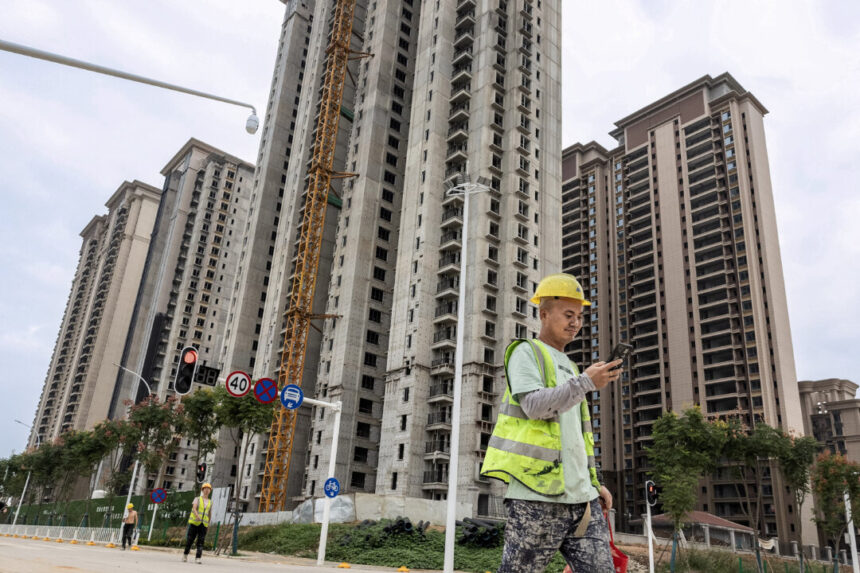Commentary
The Chinese Communist Party’s (CCP’s) strategy to support the property sector involves local governments using debt to purchase overpriced properties and selling them at discounted prices.
Beijing has introduced a rescue plan for the property sector, which has been hailed as “historic.” This plan, one of the largest bailouts in China’s history, is unlikely to resolve the real estate crisis.
The plan requires local governments to acquire unsold homes and sell or rent them at prices below market value. This approach only delays the inevitable challenges of debt and excess capacity in the real estate sector. Additionally, CCP intervention exacerbates the issue and adds more debt to an already escalating crisis.
The plan’s initial success was demonstrated by a rise in China’s stock markets following its announcement. However, short-term market fluctuations are driven by sentiment, not fundamental economic changes.
Over the past three years, Chinese stock markets have seen a loss of $6 trillion in value due to economic downturns and concerns about mounting debt and excess capacity in the property sector. Even a significant market uptick would not restore previous levels. The temporary market rise does not validate the effectiveness of Beijing’s property rescue plan.
The rescue plan essentially diverts tax revenues to private developers, saving them from bankruptcy and enabling them to continue operating. However, their primary business of constructing more properties perpetuates the existing problem.
The property sector is already grappling with oversupply, while young individuals struggle to afford housing. China is also facing an aging population crisis, partly due to the younger generation’s inability to purchase homes and start families. In a free market economy, it is impossible to have an excess of homes and potential buyers simultaneously. Prices would naturally adjust to meet demand in a truly free market, achieving equilibrium.
A comparison of how the property sector operates in a free-market context can be observed in Western countries like the United States. Many young Americans lament the high housing prices and their inability to own a home. While affordability is a concern, the situation differs from China as there is no surplus of homes in the West. Prices may be high, but there is no shortage of buyers. If demand were to decrease, prices would adjust accordingly. However, in China, government intervention prevents prices from aligning with market demand.
Several factors incentivize Beijing to maintain elevated housing prices. Firstly, developers are heavily indebted, representing a significant portion of bank loan portfolios globally. Allowing property prices to fall would expose these loans and potentially lead to developer defaults, triggering a banking crisis.
Additionally, the real estate sector contributes 20–30 percent to China’s GDP. A decline in property values would directly impact GDP growth, which has already slowed in recent years. Beijing’s control over real estate prices plays a crucial role in determining GDP size, with the oversupply perpetuated by artificially inflated property prices.
Rather than resolving the real estate crisis, the plan will further compound China’s debt burden. The People’s Bank of China is establishing a $42 billion fund to support the purchase of unsold properties, adding to the already substantial debt-to-GDP ratio exceeding 286 percent. Preventing a decline in housing prices is imperative for Beijing to avoid a decrease in GDP, yet increased debt levels will further escalate this ratio.
The views expressed in this article are the author’s opinions and do not necessarily reflect those of The Epoch Times.







